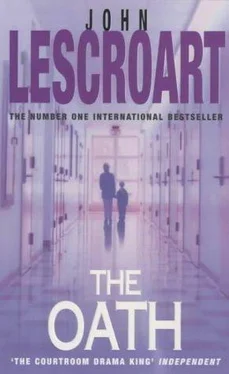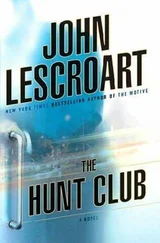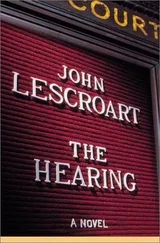But Jackman was pacing in front of his desk, commanding the room with his presence. "I may know what's plain smarter, too, Abe. I may even agree with you. But humor me. Other inquiring minds are going to want to know-the press, the mayor's office, you can guess-and they're going to ask me. I'm concerned that if we don't say anything, it looks like we don't know anything-"
"We don't know anything! It's okay if it looks like that."
Jackman ignored the interruption, repeating his earlier statement. "We know Markham was murdered. We believe his wife was a suicide."
"I don't know if I believe that at all, Clarence. John here hasn't even done an autopsy on her yet." Glitsky reined himself in a notch. Jackman was playing devil's advocate, he knew, but he would hate it if the DA committed his office to a public stance when it wasn't necessary. It would be more politics messing with his job. "All I'm saying is that it's possible somebody could have gone to a lot of trouble to make it look like a suicide. I know Langtry thinks it might be, but we haven't eliminated any possibilities yet, and I'd be more comfortable- you'd be more comfortable, Clarence-if we could eliminate a few before we start talking to the press."
Jackman frowned. "You're saying maybe somebody killed her and her family and tried to make it look like a suicide? They find anything at her place that supports that?"
"Not yet, no, sir. But there's still a lot of lab work to be done." Glitsky pressed on. "I'll go with suicide the minute we can prove it, Clarence. I promise you. But for now we've got a theory that looks squirrelly to me, which is Markham gets to the hospital all banged up, nearly dead in fact, and somebody decides, spur of the moment, to take the opportunity and kill him?"
Jackman wasn't backing down. "I honestly believe it will look just precisely like that to some reporter somewhere."
"Okay, so tell him you've got a problem with that. Like why take the risk if he was probably going to die anyway?"
Jackman went back to Strout. "He wasn't necessarily going to die, was he, John?"
Conjecture wasn't Strout's long suit, but the DA had asked him a direct question and he felt he had to say something. "Maybe not. Especially once he's out of the ER." He stopped, lifted his shoulders, let them drop. "He could have survived."
"So," Jackman took Strout's answer as a ringing endorsement, "somebody, maybe even his wife-"
"Maybe even the wife!" This was new and, to Glitsky's mind, completely bizarre. "You're saying Carla killed her husband at the hospital?"
Jackman backed off. "All right, maybe not. But somebody at the hospital came to the conclusion that Markham was going to pull through and, for some reason, couldn't have that."
"All I'm saying then, Clarence, is let's find the reason."
The exchange was threatening to grow heated and Treya stepped in. "Maybe there needn't be a rush on the wife, Clarence? You only need to make the point that somebody killed Mr. Markham. And I think we'll all agree," Treya added quickly, turning to her husband, "that the potassium points much more clearly to a murder than an accident at the hospital. Wouldn't that be true, Abe? Could you agree to that?"
Glitsky understood what she was asking him. More, what she was doing. And while now with the potassium overdose Glitsky believed it likely that Markham had indeed been murdered, belief wasn't certainty and never would be. "Okay," he said to his wife. "Let's for the moment agree Markham was murdered in the hospital. So you tell whoever asks that we're investigating. That's what we do. What's the rush to go public?"
From Treya's expression, Glitsky realized that finally he'd asked the right question. Jackman raised himself off his desk. "Just this, Abe. If Markham was murdered, it goes to the grand jury. I can legitimately use an investigation into his death as a way to get into the books and business practices at Parnassus. We've got every reason to look in his files, take the place apart, see if we can find out why. And who's gonna complain? Somebody killed their top guy. Why wouldn't they want to cooperate in every way?"
Jackman let his words hang in the air, then continued. "If we begin any kind of inquiry on the billings and their lawyers get into it, we're talking months, maybe years, delay on subpoenas, delay delivering records that they may have shredded by then anyway, or forged new ones. Plus all the public bickering, loss of faith in the city's institutions, blah blah blah. This way, we're in. It's a murder, Abe, and even in this town a solid majority of the voters oppose murder. Nobody will see it as more complicated than that, at least for now. The grand jury's looking into the murder of Tim Markham. There is every justification in the world to probe his relationships and even business practices. And since he was killed in Portola Hospital, there's a demonstrable link there."
But Glitsky was shifting in his seat again. It was a bad idea to get the DA's office involved in his investigations, particularly if Markham's murder was just the cover for a financial probe of Parnassus. "What if we find Markham's killer before you get finished?" he asked.
Marlene answered. "We'll leave the grand jury impaneled. We just keep going on the financial stuff."
Abe frowned at this, but he knew that technically, Marlene could do just that. The grand jury was not crime specific-Jackman and Ash could simply use it to go fishing.
"But I'll still have your support for the murder investigation as the priority?" he asked. "I don't want to get a suspect close to the net and not be able to bring him in."
"That won't happen, Abe," Marlene said.
"Couldn't happen," Jackman repeated. "We're on the same team."
Glitsky smiled all around, fooling no one. "Well, with that assurance," he said as he stood up, "I'd better get to work."
Hardy hit the button shutting off the alarm. Throwing off the covers, he forced himself to sit up lest he give in to the urge to lie back down, just for a minute. Frannie murmured something from behind him, and he felt her hand brush against the small of his back. Reaching around, he squeezed it quickly, then let go and stood up.
The house felt dark. He stood a minute, summoning the will to move. Outside, a fresh gust rattled the windows. The storm, still blowing.
After he'd showered and shaved, he pulled on his pants and a shirt in the bathroom so he'd be as unobtrusive as possible. He didn't remember distinctly, but he must have had a rough night's sleep. He still hadn't quite gotten to fully awake. Frannie hadn't yet stirred, either-he thought he'd go downstairs and bring a cup of coffee up for her. That way they would get a few minutes of peace together before the daily marathon of getting the kids off to school.
In the kitchen, he turned on the light and fed his tropical fish. The long hallway to the front door seemed especially dark as well, but he'd already concluded that it was the weather, so he didn't give it any more thought. When he opened the door, he noted with satisfaction that the Chronicle had made it up onto the porch-by no means a daily occurrence. Maybe it was a sign. He was in for a lucky day.
But God, he thought, it was dark.
He'd often expressed his belief that one of the greatest of modern inventions was the automatic coffee machine that began making your critical morning brew about the time that your alarm went off, so that when you got to it, it was ready for you. But when he got back to it, he stopped, frowning. The carafe was empty. Worse, the little green "program" light was still on-when it went into "run" mode, the light turned red. What was going on? He distinctly remembered preparing the coffee last night before he'd gone up to bed, and now he leaned down, squinting, and checked the clock.
Читать дальше












